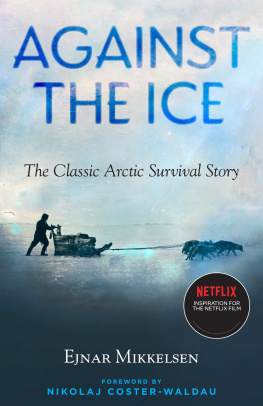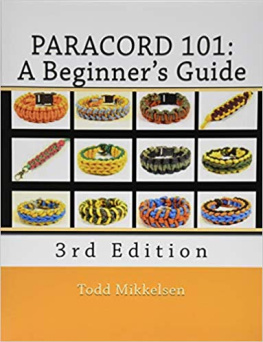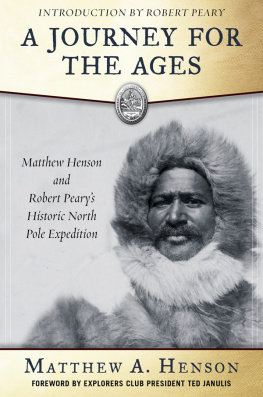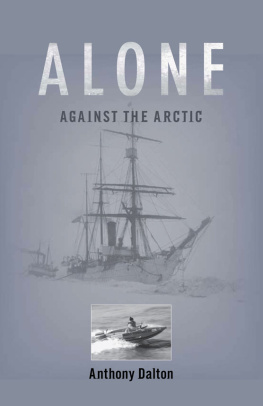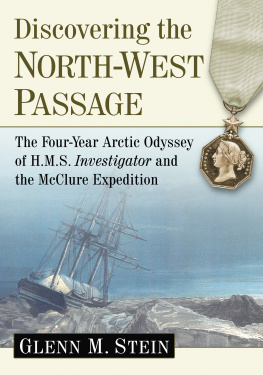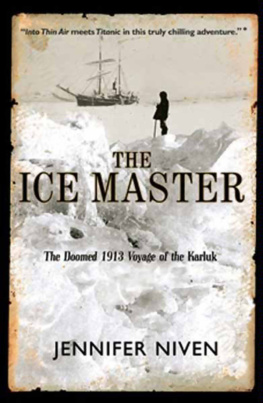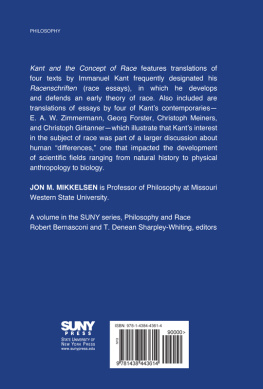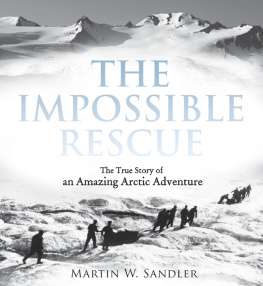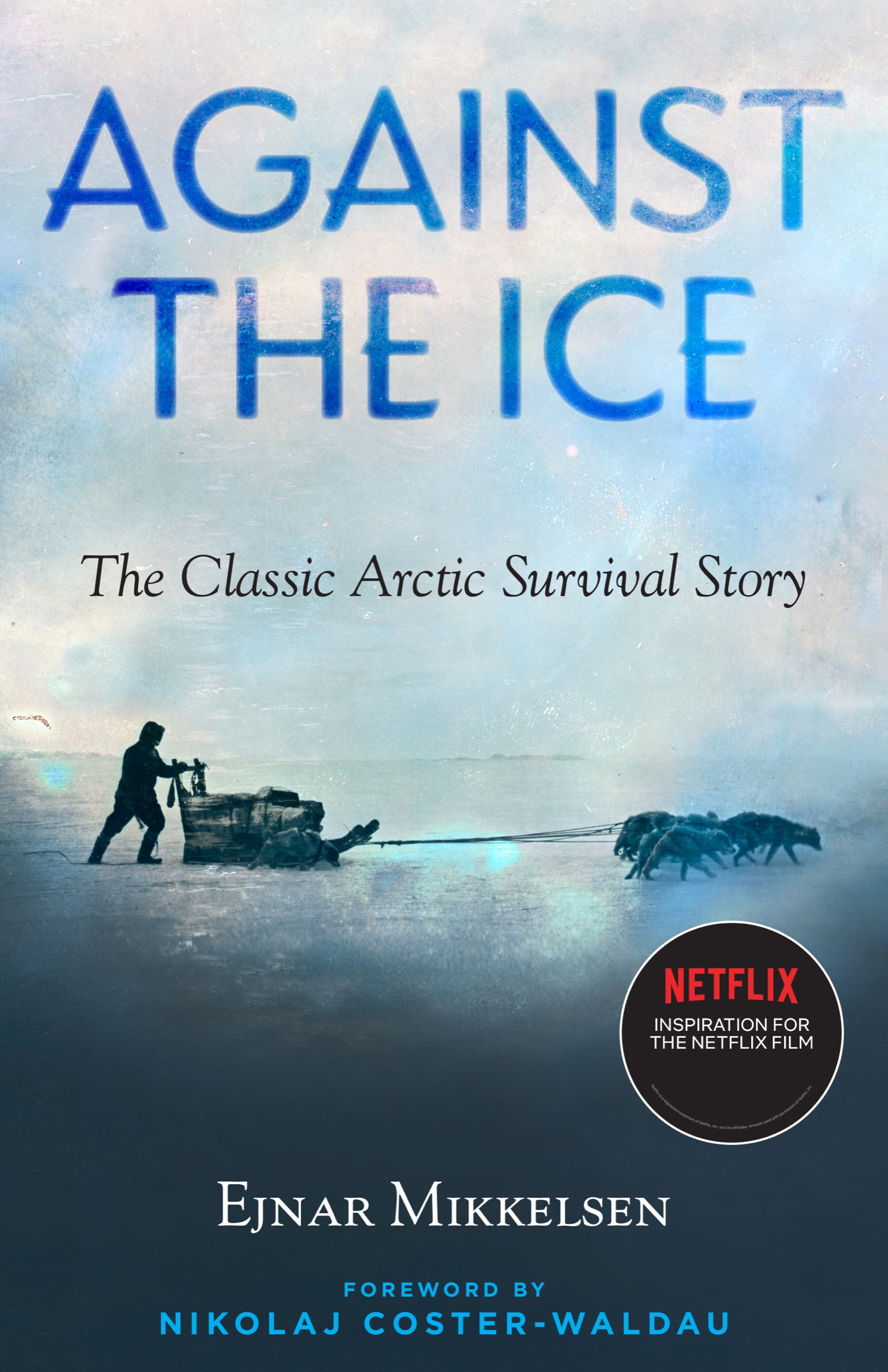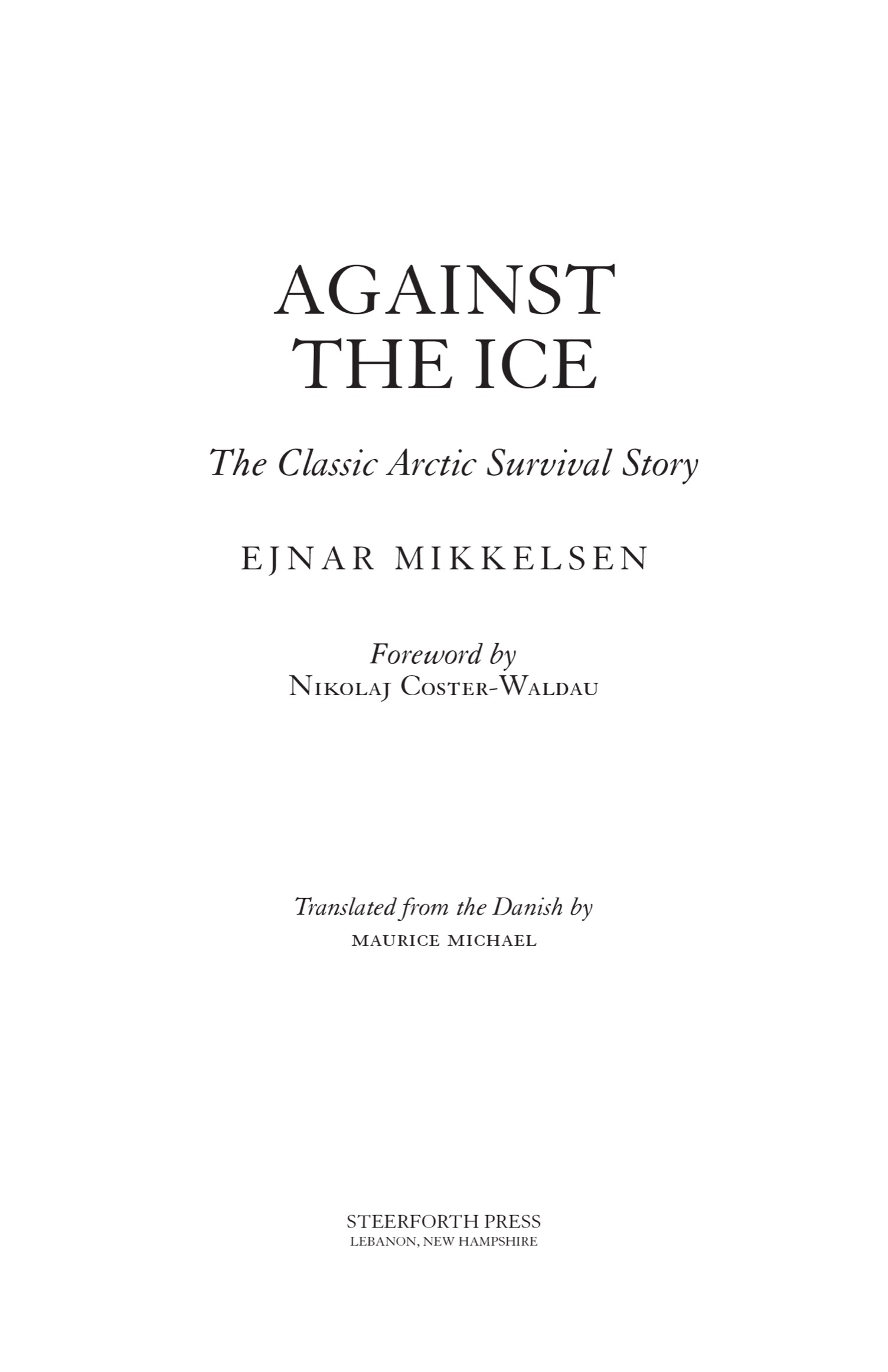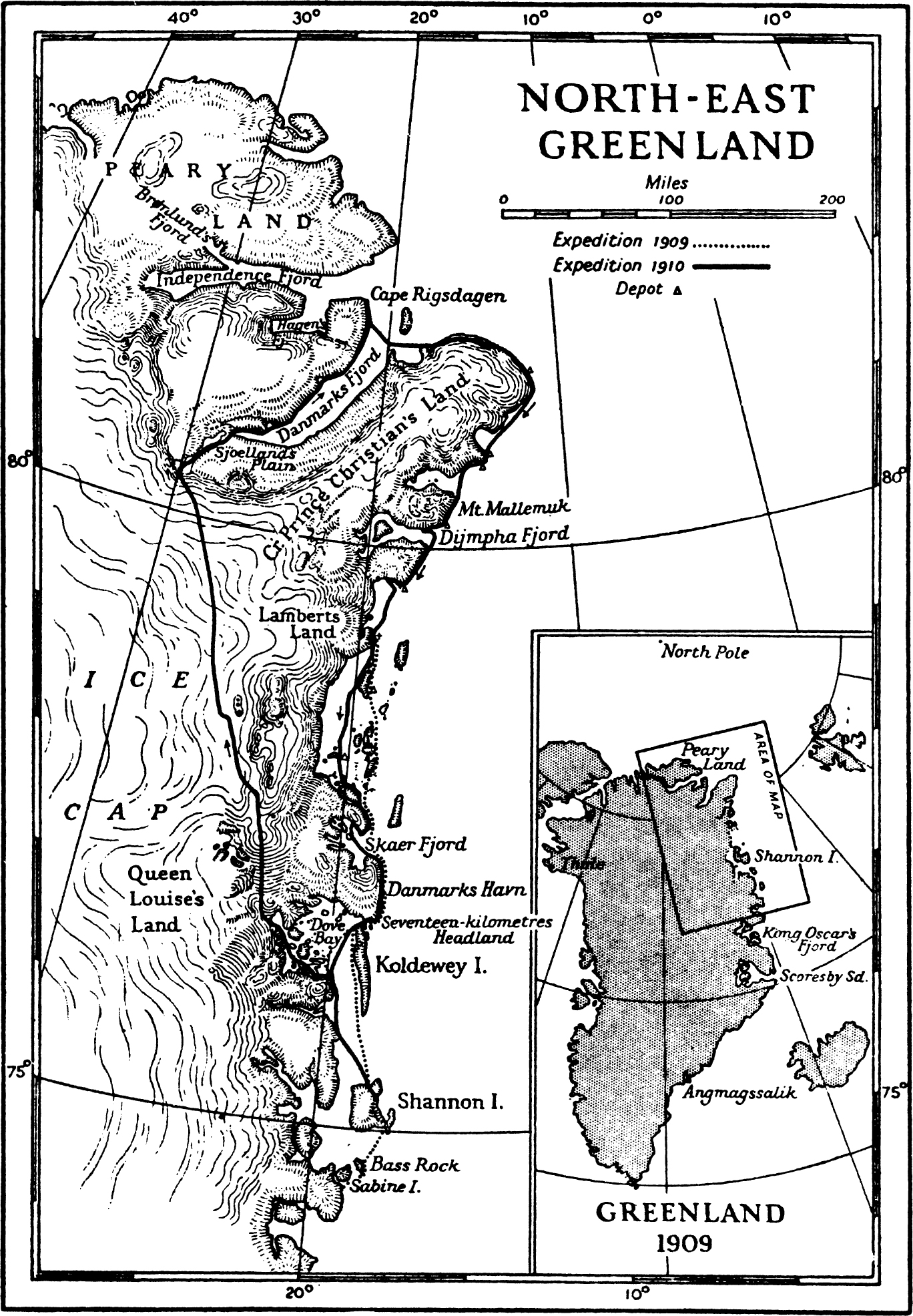Copyright Ejnar Mikkelsen & Gyldendal, Copenhagen 1955. Published by agreement with Gyldendal Group Agency.
The publisher wishes to thank the Danish Polar Center for their assistance. All photographs Arctic Institut.
For information about permission to reproduce selections from this book, write to:
[Farlig Tomandsfrd. English]
Two against the ice / Ejnar Mikkelsen; translated from the Danish by Maurice Michael. Steerforth Press ed.
p. cm.
First published in Copenhagen : Gyldendal, 1955.
1. Mikkelsen, Ejnar, 1880JourneysGreenland. 2. Mikkelsen, Ejnar, 1880JourneysArctic regions. 3. GreenlandDiscovery and explorationDanish. 4. Arctic regionsDiscovery and explorationDanish. 5. Alabama-expeditionen til Grnlands nordstkyst (1909-1912) 1. Title.
IVER P. IVERSEN
FOREWORD
Queen Margrethe II of Denmark was working as the costume designer on an adaptation of a Hans Christian Andersen fairy tale that was being directed by a good friend of mine, Peter Flinth. During filming, she suggested that the memoir Two Against the Ice by Ejnar Mikkelsen would make a great movie. As a good, proud subject, Peter then sent a copy of the book to me.
It was 2011, and I was in Bolivia working on a fictional story about what would have happened if Butch Cassidy had lived out his days in the mountains there. Reading Two Against the Ice, I was struck by how reality often is stranger and more extreme than fiction. I have always been attracted to stories of explorers, tales of men and women who knowingly put themselves in harms way in the pursuit of adventure and discovery. Mikkelsens story grabbed hold of me and did not let go.
At the turn of the previous century, Arctic explorers alpha males born with incredible self-belief in their abilities to achieve the impossible traveled to places where nature held no respect for human life. Risking their lives to go where no man had gone before, many of them perished.
What set the story told in Two Against the Ice apart is that it featured two men who were the unlikeliest of companions. Ejnar Mikkelsen, an experienced explorer, ends up with a young mechanic, Iver Iversen, who only joined the expedition to Greenland that Mikkelsen was leading when its original mechanic turned out to be useless and a drunk. Iver had little if any ambition and zero experience in the Arctic.
So, when Mikkelsen needed a volunteer to accompany him on an arduous journey, it was surprising that it was the rookie Iversen who stepped up and threw himself into what he believed would be a few months of adventure.
These few months became three long years during which the two men battled the ice and deadly cold of the Arctic, managing to survive by virtue of companionship, friendship, and an unwavering trust in each other.
Within this book there is a particular moment that made me want to adapt it into a movie. Its a brief description of a postcard the two men find. The postcard depicts a group of young ladies in front of a building, and Ejnar and Iver choose imaginary girlfriends from among the members of the group. Ejnar picks only one and Iver picks three after all, he was still young and the ladies become very much real in their minds.
For me the anecdote of this simple postcard symbolized human perseverance. With nothing to look forward to but their inevitable demise, their minds created a fictional space to nurture. This provided blessed relief from the bleakness of their reality and amazingly, against impossible odds, they survived.
Ejnar and Iver suffered their one and only real falling-out when Iver shared a dream he had that included the girl Ejnar had chosen from the postcard to be his imagined beloved. Ejnar is consumed with anger and jealousy until finally they agree to give up their fictitious relationships and instead focus on their own very real companionship to see them through. The biggest threat they faced was breaking faith with each other while no more than a few feet apart, stranded in the far, far north in a tiny cabin on Shannon Island.
Ejnar Mikkelsen is a great storyteller who spins the tale of his journey with Iver Iversen into an account of what it means to be human. At the core of our existence, the most valuable experiences we ever have are with our companions in life.
We made the movie. My friend Peter directed, my writing partner and good friend Joe Derrick co-wrote the script. And a new friend, Baltasar Kormkur, co-produced. Friends and companions telling a story of friendship and companionship.
The film is an adaptation of Mikkelsens remarkable book, and we have done all within our powers to do it justice. (The film is titled, simply, Against the Ice, and the publisher of the volume you are reading now chose to shorten the books title in recognition of our effort.) My hope is that the film will serve as a good companion to the book.
If you watch the film on Netflix, I hope it will give you a sense of the preposterous beauty of Greenland, the unfathomable power of nature, and the fundamental human need for companionship. Enjoy.
Nikolaj Coster-Waldau
Copenhagen
October 2021
CHAPTER I
The Start of a Greenland Expedition
An expedition is given upMylius-Erichsen perishes in the wildsLord Northcliffes offer and its consequencesGay departureIll-omensWe put in to Angmagssalik
The lot of the out-of-work explorer is not a happy one. His head teems with plans for new travels, but, poor man, he usually lacks the essentials for putting them into effect; for he is broke, stony broke, and often worse than that. I, at least, seem always to have been left with a number of larger or smaller bills to meet at the end of my expeditions, without having any idea where the money was to come from.
Of course there are fees to be earned for articles and lectures, and once in a while a cheque for a book about ones latest expedition, but they make little difference to a large deficit. Also, you feel that having returned to a civilized country after several years in the wilds, you are entitled to a period of ease and freedom from care.
Every civilized country has its kind people who feel sorry for the poor explorer with neither roots nor money, and hasten to tell him to be more sensible and to adopt a staid, quiet and profitable way of life instead of wasting his time running about the wilds. There was no need for those kind persons to tell me that; it had been all too obvious for a number of years. But what are you to do, when you have been born with eternal unrest in your body and are drawn to none but those parts of the world that sensible people regard as fit only for fools?

